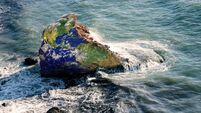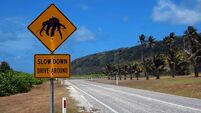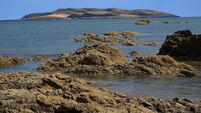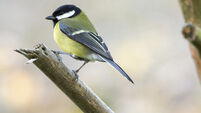Juanita Browne: Don’t look anywhere… if you don't want to see Ireland's biodiversity emergency

Don't Look Up! Written before the Covid-19 pandemic, the film does a good job of looking at the difficulties we face in tackling the climate crisis. Picture: Niko Tavernise/Netflix
I thought the recent film was great. While it received many bad reviews from film critics (which seemed to be mainly based on repetitive jokes and too transparent satire), I thought it did a good job of holding up a mirror to modern media and public engagement with global issues.
Critics found the jokes too obvious — the Trump-like president, the celebrity-obsessed culture, the reluctance of TV hosts to take on serious topics, the wacky tech billionaire, and the public’s distrust of science. Reviewers felt it was too hyperrealistic, but I’d argue that the writer Adam McKay's satire worked well when our culture today is so extreme.
CLIMATE & SUSTAINABILITY HUB








![<p> The International Union for the Conservation of Nature says that “an ecosystem is collapsed when it is virtually certain that its defining biotic [living] or abiotic [non-living] features are lost from all occurrences, and the characteristic native biota are no longer sustained”.</p> <p> The International Union for the Conservation of Nature says that “an ecosystem is collapsed when it is virtually certain that its defining biotic [living] or abiotic [non-living] features are lost from all occurrences, and the characteristic native biota are no longer sustained”.</p>](/cms_media/module_img/9930/4965053_12_augmentedSearch_iStock-1405109268.jpg)